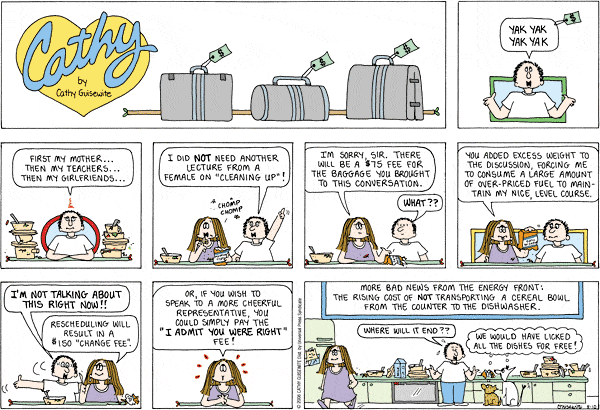David Brooks, Social Psychologist
According to David Brooks, "Harmony and the Dream", NYT, 8/11/2008:
The world can be divided in many ways — rich and poor, democratic and authoritarian — but one of the most striking is the divide between the societies with an individualist mentality and the ones with a collectivist mentality.
This is a divide that goes deeper than economics into the way people perceive the world. If you show an American an image of a fish tank, the American will usually describe the biggest fish in the tank and what it is doing. If you ask a Chinese person to describe a fish tank, the Chinese will usually describe the context in which the fish swim.
These sorts of experiments have been done over and over again, and the results reveal the same underlying pattern. Americans usually see individuals; Chinese and other Asians see contexts.
When the psychologist Richard Nisbett showed Americans individual pictures of a chicken, a cow and hay and asked the subjects to pick out the two that go together, the Americans would usually pick out the chicken and the cow. They’re both animals. Most Asian people, on the other hand, would pick out the cow and the hay, since cows depend on hay. Americans are more likely to see categories. Asians are more likely to see relationships.
Those who've followed our previous discussions of David Brooks' forays into the human sciences ("David Brooks, Cognitive Neuroscientist", 6/12/2006; "David Brooks, Neuroendocrinologist", 9/17/2006) will be able to guess what's coming.
In this case, Mr. Brooks has taken his science from the work of Richard E. Nisbett, as described in his 2003 book The Geography of Thought: How Asians and Westerners Think Differently and Why, and in many papers, some of which are cited below. I was familiar with some of this work, which has linguistic aspects, and so I traced Brooks' assertions to their sources. And even I, a hardened Brooks-checker, was surprised to find how careless his account of the research is. The relation between Brooks' column and the facts inspired me to model my discussion after the Radio Yerevan jokes that arose in the Soviet Union as a way to mock the pathetically transparent spin of the Soviet media:
Question to Radio Yerevan: Is it correct that Grigori Grigorievich Grigoriev won a luxury car at the All-Union Championship in Moscow?
Answer: In principle, yes. But first of all it was not Grigori Grigorievich Grigoriev, but Vassili Vassilievich Vassiliev; second, it was not at the All-Union Championship in Moscow, but at a Collective Farm Sports Festival in Smolensk; third, it was not a car, but a bicycle; and fourth he didn't win it, but rather it was stolen from him.
Read the rest of this entry »
